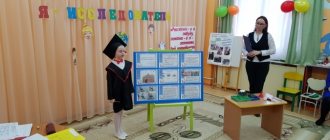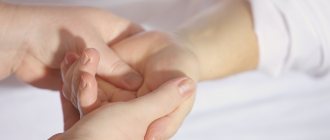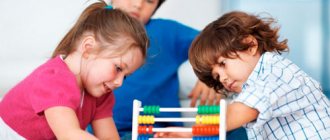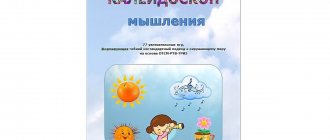We are turning to you, dear parents!
From the first days of life, every child goes through his first, and therefore most important school: the school of the family. And you are the first, most important and fateful teachers. Don't miss the time when your children believe that their parents know and can do everything. Don't betray their trust!
Help the child, who he is, whose he is, where he comes from, how he was born, what he should be like as a rational being.
Instill in your child by word, show by example: not to do evil, not to commit a bad deed is quite simple if you live by the principle: do unto others as you would like them to do unto you.
With word and example, help make sure that everyone is able to perform a miracle—to make the life of someone in their environment a little bit brighter, warmer, more comfortable.
Train your child in sympathy, in complicity, and encourage your child to good deeds by your example. Help me understand and love my home, its way of life, its routines and traditions.
Help your child fall in love with the land on which his home stands, on which his ancestors walked and left it to us as an inheritance.
Dear parents! It is difficult to overestimate the role of the family and especially the maternal school in the upbringing of a person. Remember: he who is blind at home will not see anything outside his walls.
For a child, the family is the environment in which the conditions for his physical, mental, emotional and intellectual development are formed.
For an adult, the family is a source of satisfaction for a number of his needs and a small team that places various and quite complex demands on him. At the stages of a person’s life cycle, his functions and status in the family change successively.
“Children should live in a world of beauty, games, fairy tales, music, drawing, fantasy, creativity”
(V.A. Sukhomlinsky)
Children are a miracle of the world, I saw it myself. And he ranked this miracle among the most wonderful miracles. We are responsible to the future: Our joy, pain and sadness, Our future is children... It’s difficult with them, so be it.
Our children are our strength, the lights of extraterrestrial worlds, If only the future was as bright as they are.
Parental authority
Combined with love it sets
Certain boundaries that help the child
make the right decision, make your own choice
Responsibility
By your example, you teach children to be responsible, disciplined, and to control themselves
Love
Tenderness and affection give children confidence that they are loved.
Attention
By making time for your children, you show them that you need them.
Admiration for girls and pride for boys develops a sense of self-worth
Unconditional love develops self-confidence and gives a feeling of security
Mobile folder » My city. I’m proud of you, my Kamchatka!”
A rectangular double-sided panel of white color with a width to length ratio of 2:3, reproducing along the lower edge a blue stripe 1/6 of the width of the flag, which depicts the figures of the coat of arms of the Petropavlovsk-Kamchatka urban district, made in black, gray and red.
In the silver field there are three black fire-breathing mountains (the middle one is in front of the other two) with scarlet flames and black smoke above them. The shield is crowned with a golden tower crown with five visible teeth, with a laurel branch along the lower edge and with two naked swords crossed behind the crown with silver blades and gold hilts. Shield holders - silver in golden robes, the Holy Apostles Peter (on the right) and Paul (on the left), supporting a shield with one hand, and in the other having: Peter - silver keys and a scroll, Paul - a book. The base is two golden sea anchors placed crosswise, paws down. The shield is surrounded, the base is entwined with the ribbon of the Order of the Red Banner of Labor.
Flag
Coat of arms of Petropavlovsk-Kamchatsky
Monument to Peter and Paul
The opening took place in 2005. Then it was consecrated by representatives of the Russian Orthodox Church. The monument was erected in honor of the apostles, after whom Bering named the city in his time. The bronze monument stands on a high pedestal. It depicts Peter and Paul near a large cross. The installation site was chosen to be the embankment of Avachinskaya Bay, where the expedition members landed. The sculptor Isakov was responsible for the project.
Nikolskaya Sopka
It is located close to the historical center of Petropavlovsk-Kamchatsky. During the Crimean War, fighting took place here. In honor of a number of historical events associated with Nikolskaya, several monuments were erected, as well as cannons in the place where Maksutov’s battery stood. It is picturesque both in winter and in summer, when it is almost completely overgrown with dense greenery. It is classified as a natural monument. Popularly called the “hill of love.”
Sights of Petropavlovsk-Kamchatsky
Avacha Bay
The city is located on its northern coast. Marked on maps in 1729. Occupies 215 km² from the Pacific Ocean. It does not freeze, which makes it convenient to use as a port. The depth allows you to accept any vessels without restrictions. For tourist walks or other movements, you need to obtain permission, since there are military bases nearby.
"Home Volcanoes"
They are also called the Avacha group of volcanoes. There are 6 of them in total: the main ones are Avachinsky, Kozelsky and Koryaksky, and Vilyuchinsky, Gorely, Mutnovsky are also sometimes added to them. Of the base three, only Kozelsky is considered completely extinct. The largest is Koryaksky, whose height
reaches 3456 meters. Avachinsky –
the most popular of the volcanoes. They climb it and organize an annual festival.
Poems about Petropavlovsk-Kamchatsky
Petropavlovsk-Kamchatsky Petropavlovsk lives By the volcano under the armpit, Well, the neighbor has a break for now. It would be nice to stretch out for a thousand years! The handsome neighbor is slowly smoking. The Great Ocean sighs nearby. He sends violent winds, And a quiet fog, He counts the tides, Like a pulse on a hand, And he forgets the jellyfish On the black sand.
(R. Aldonina)
A distant land of smoking volcanoes, Lakes of the purest, fish and caviar, Places that cannot be found in foreign countries, Places of pristine wild beauty,
The land of wild garlic and tart honeysuckle, Where brown bears and submarines are home, Where you will be treated to your heart's content with sockeye salmon, And flounder, and crab, and char...
The land of rocks and bays, cloudberries, princes, the land of fast rivers and stone birches, the land where under the fussy cries of seagulls, the old sea and the cliff are arguing...
A land where seals are quick to catch fish, Where boiling water flows from the ground to the sky, A distant land called Kamchatka - Like you,
God has not created many miracles...
My city.
“I’m proud of you, my Kamchatka!”
Parents about punishments
Memo
Parents about raising children.
Memo for parents
on developing a culture of behavior in children.
By spanking a child, you teach him to fear you.
By showing the worst traits of your character in front of your children, you are setting a bad example for them.
Corporal punishment requires less intelligence and ability from parents than any other educational measures.
Spanking can only confirm, but not change, a child's behavior.
If you spank a child “in the heat of the moment,” this means that you have less self-control than you require from your child.
The goal of disciplinary techniques is to change the child’s desires, not just his behavior.
Very often, punishment does not correct behavior, but only transforms it.
Punishments make the child fear losing parental love. He feels rejected and begins to be jealous of his brother or sister, and sometimes even of his parents.
A punished child may develop hostile feelings towards his parents. And as soon as two feelings unite in him - love and hatred - a conflict immediately arises.
Frequent punishment encourages the child to remain infantile.
Punishment can force a child to get the parents' attention by any means necessary.
You cannot punish a child under 2.5-3 years old.



